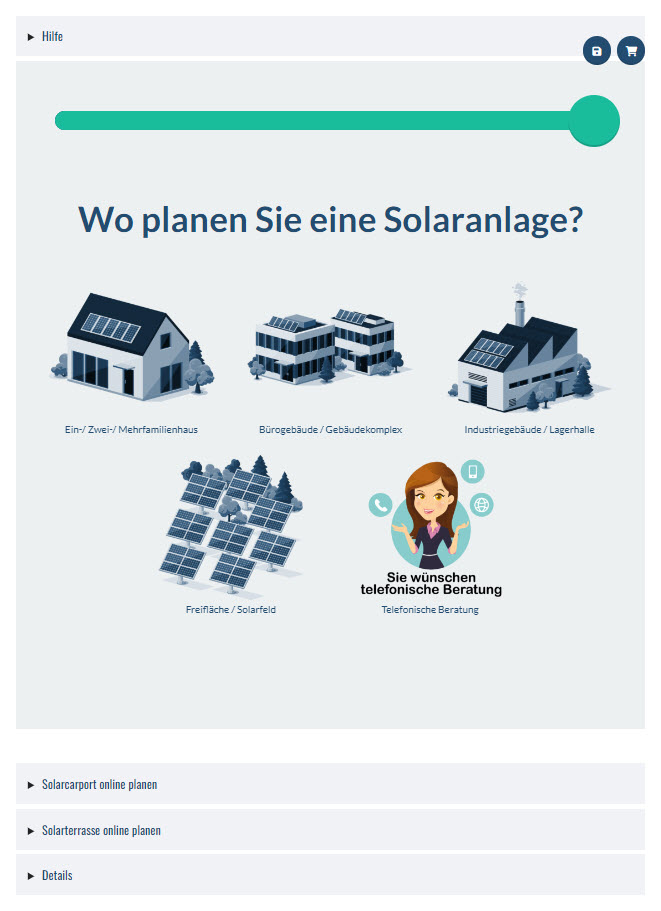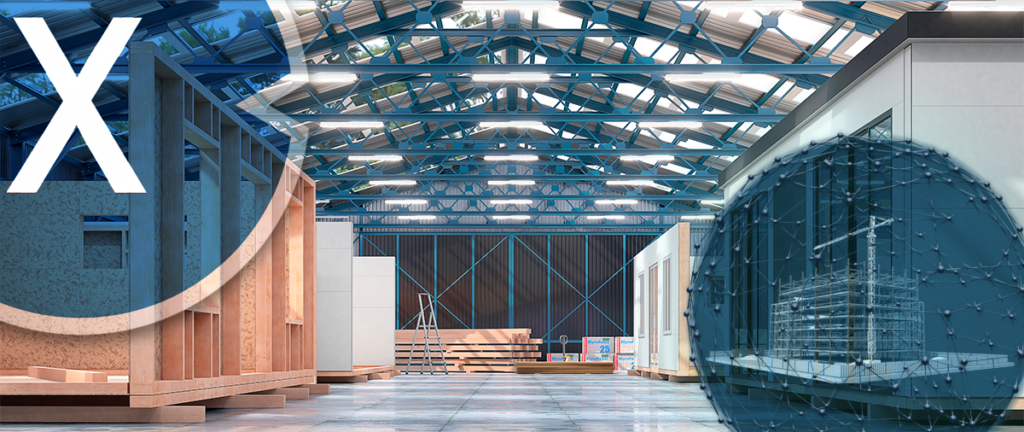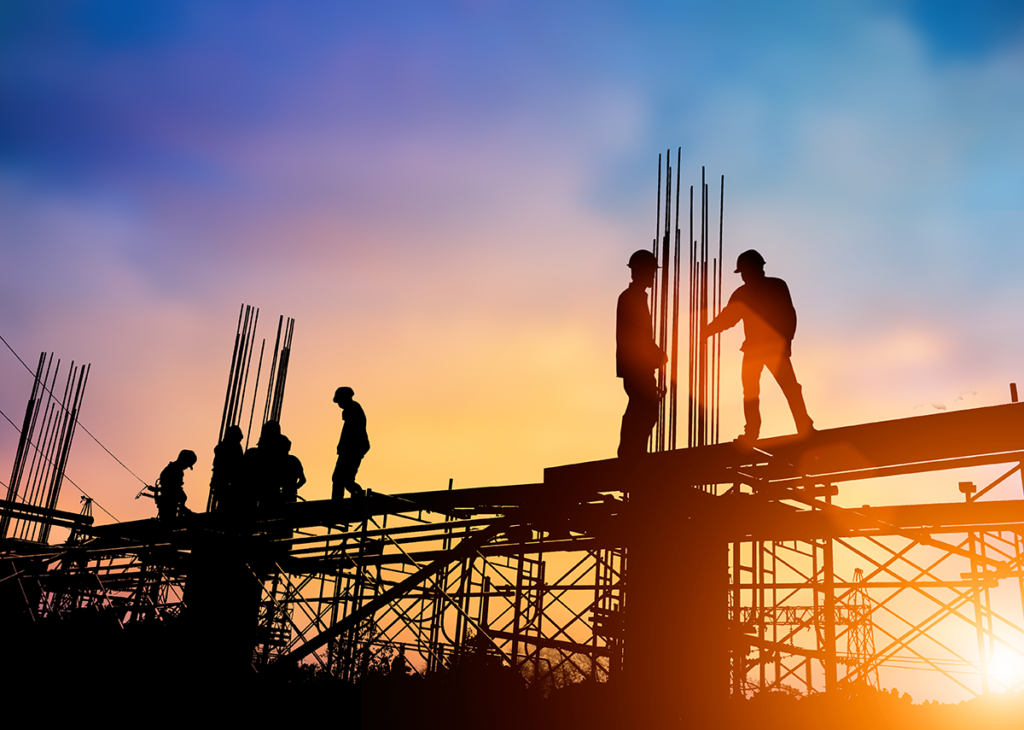Tax reduction plan: How Lindner and Geywitz want to make building and living affordable (again) - influence on the housing market and the solar industry
Language selection 📢
Published on: August 9, 2023 / update from: August 9, 2023 - Author: Konrad Wolfenstein

Christian Lindner | Klara Geywitz – Image: Alexandros Michailidis & Juergen Nowak | Shutterstock.com
A brief overview of the topic
📰 The headlines
- 🏢 Plan for affordable construction & tax reduction 🏠💰
- The push by Lindner and Geywitz to reduce taxes 💡📉
- The 7-point plan of the CDU employee wing 📋🤝
🏢 Plan for affordable construction & tax reduction
- Lindner and Geywitz have made a proposal for affordable construction and tax cuts.
- The aim is to reduce housing costs and stimulate the economy.
📊 Lindner and Geywitz's push for tax cuts
- Lindner and Geywitz have proposed measures to reduce the tax burden.
- The aim is to reduce the financial burden on citizens and stimulate the economy.
📋 7-point plan of the CDU employee wing
- The CDU workers' wing has presented a 7-point plan.
🏛️ Reduce housing costs 🏠 Reduce taxes
- The main goals are to reduce housing costs and taxes to provide financial relief for citizens.
- This should also strengthen the economy.
📈 Boost the economy 💰 Social justice
- The proposed measures are intended not only to stimulate the economy, but also to promote social justice.
- Lower housing costs and taxes could provide broader benefits for the population.
🏗️ Construction plan & tax reforms 🌱 Economic development
- The plan presented affects both the construction sector and tax reforms and is aimed at promoting the economy.
- A comprehensive strategy to strengthen various aspects of the economy.
One-sentence summary: Lindner and Geywitz propose a plan to reduce housing costs, reduce taxes and thereby stimulate the economy, with a focus on social justice. The CDU workers' wing is countering this with a 7-point plan.
#️⃣ Hashtags: #Reducing housing costs #Tax reduction #Economic development #Social justice #Working conditions
Plan of the traffic light coalition against dramatic price increases: Affordable building and living is aimed for
Klara Geywitz has developed an innovative strategy to boost the battered housing sector. Your approach provides to expand the tax depreciation options in order to revitalize the construction activities. A central aspect of your plan is the introduction of a “degressive afa” for new residential buildings in the period from 2024 to 2030. This measure enables higher initial depreciation that decrease over time. Specifically, this means depreciation of 7 % for the first four years, 5 % for the following four years and 2 % for the subsequent 26 years.
Synergy effects and growth opportunities
Geywitz's plan harmonizes with Finance Minister Christian Lindner's expected measures under the Growth Opportunities Act. This law aims to relieve the economy of around 6.5 billion euros annually. The integration of the two initiatives promises synergy effects that could stimulate economic growth. Nevertheless, the Ministry of Finance is cautious and emphasizes the need for intelligent supply strategies and incentives for private investment instead of permanent subsidies.
Klara Geywitz's measure has been positively received in the housing industry. Many see this as having the potential to revitalize the stagnating construction industry. Nevertheless, there are also critics, including the Green Party and the Left Party. They criticize that the proposed tax incentives excessively favor profit-driven companies without ensuring sufficiently affordable rents or environmental standards.
Federal Finance Minister Christian Lindner (44, FDP, left) and Federal Construction Minister Klara Geywitz (47, SPD, right) are working together to reduce the tax burden when purchasing owner-occupied residential property. Rising costs in the real estate sector are causing increasing concern among politicians. Cities and municipalities across Germany are reacting with increased property tax rates, which is leading to a growing financial burden. In addition, many families are prevented from taking the step into owning their own four walls due to high property transfer taxes.
Details of the Lindner-Geywitz plan
Lindner intends to make the real estate transfer tax more flexible by introducing a allowance. He does not want to raise a real estate transfer tax on this when buying self -used residential property. One challenge is that the federal states have to agree to this change in the Federal Council. The fear of loss of income has so far led to rejections. However, Lindner strives to provide funds from the federal budget in order to compensate for these potential losses. Additional income is to be generated by introducing an extended taxation of so -called “Share Deals” for real estate purchases. These deals relate to the acquisition of shares in companies that own real estate instead of direct property. This approach should make investors more difficult to avoid the real estate transfer tax.
The question of property tax
The responsibility of the property tax is the responsibility of the municipalities, which is why the Federal Government can only intervene to a limited extent here. Finance Minister Lindner explains: “The reform of property tax has already been carried out by the previous federal government. It was always taken care that this does not lead to an actual increase in the tax burden. I appeal to the municipalities to stick to this promise. " It remains questionable whether this appeal is heard at the municipalities. Experts assume that the property tax will continue to increase according to the development of the past few years.
Concrete suggestions from the CDU employee wing
According to the Bild newspaper, the state chairmen of the Union Employees in North Rhine-Westphalia and Bavaria, Dennis Radtke (44, CDU, NRW) and Volker Ullrich (47, CSU, Bavaria), have proposed tax relief in a joint paper. The demands include the elimination of VAT for construction costs when purchasing a self-used property for the first time. New rent-to-own models for state-owned housing are also being proposed, in which low-income tenants can pay the purchase price in installments and gradually acquire ownership. In addition to the abolition of the property transfer tax, a ten-year exemption from property tax for first-time owners is also to be introduced, with the federal government covering the loss of income.
Kai Warnecke, President of the owner Association “Haus & Grund”, expresses a positive statement about the proposal of property tax deletion, but emphasizes the importance of a balanced burden. He warns that relief for some must not become a double burden for others. A careful consideration of the tax changes is essential to find a balanced balance.
Alternative perspectives and solutions
The debate about Klara Geywitz's strategy to promote the housing market shows the complexity of the challenges in this area. While tax incentives offer a promising opportunity to stimulate construction activity, the balance between economic growth and social responsibility remains a key issue. It will be crucial to take the different perspectives into account and find sustainable solutions to ensure a thriving and balanced housing industry in Germany.
The critics suggest alternative measures to do justice to the housing market. One focus is on promoting social housing and facilitating renovations of existing structures. The creation of affordable rental housing for low-income people is particularly urgent.
If tax benefits are introduced, these should primarily benefit non-profit housing construction with long-term rental restrictions.
The current situation on the German housing market is complex and challenging. The Minister of Construction, Klara Geywitz, is relying on innovative measures to boost housing construction activities. However, their push to use tax incentives to encourage real estate development has drawn mixed reactions. Given rising loan interest rates and material costs, the industry is in crisis. The government's ambitious target of 400,000 new homes per year has been significantly missed, exacerbated by dwindling building permits.
Plan your solar system for the most common applications conveniently online with our solar system planner!
With our user-friendly solar system planner you can plan your individual solar system online. Whether you need a solar system for your home, your business or for agricultural purposes, our planner offers you the opportunity to take your specific requirements into account and develop a tailor-made solution.
The planning process is simple and intuitive. You simply enter relevant information. Our planner takes this information into account and creates a tailor-made solar system that meets your needs. You can try out different options and configurations to find the optimal solar system for your application.
Additionally, you can save your plan to review later or share with others. Our customer service team is also available to answer your questions and provide support to ensure your solar system is optimally planned.
Use our solar system planner to plan your individual solar system for the most common applications and advance the transition to clean energy. Start now and take an important step towards sustainability and energy independence!

The solar system planner for the most common applications: Plan the solar system online here - Image: Xpert.Digital
More about it here:
📣 Energy-related renovation and new construction, consulting, planning and implementation for industry, retail and municipalities
Our experienced team will support you in optimizing your buildings to reduce energy consumption and promote sustainable energy use with photovoltaics. We analyze your individual needs and create tailor-made concepts that make sense both economically and ecologically. Regardless of whether it is about the energy-efficient renovation of existing buildings or the construction of new energy-efficient structures, we are at your side. Industrial facilities, retail buildings and municipal facilities can reduce their energy costs and reduce environmental impact while improving the comfort and efficiency of their buildings through our tailored solutions.
👨🏻 👩🏻 👴🏻 👵🏻 Energy-saving renovation and new construction, advice, planning and implementation for private households
We offer comprehensive support for private households in the energy-efficient renovation and construction of new buildings with photovoltaics. Our experienced team is at your side to help you advise, plan and implement your sustainable energy solutions. We analyze your energy consumption, identify savings potential and develop tailor-made concepts to improve your energy efficiency. From improving building insulation to installing energy-efficient windows and doors to installing photovoltaic and solar systems - we accompany you step by step to make your home more energy efficient and environmentally friendly. Trust in our expertise and benefit from the numerous advantages that energy renovation and the use of renewable energies offer you. Together we will create a sustainable future for your home.
Understanding property taxes and their importance to property owners
The Role of Property Taxes in Funding Local Community Projects
Property tax and property transfer tax are both types of taxes that are levied in connection with real estate in many countries. They serve to generate revenue for the government and tax various aspects of property ownership and transfers. Here is an explanation for both types of taxes:
Property tax
Property tax is a tax paid by the owners of land and real estate. It is usually based on the value of the land or property and local tax rates. The calculation may vary depending on the country, region and municipality. Property taxes are often used to fund local community and infrastructure projects, such as: B. Road construction, garbage collection, educational institutions and other public services.
Real estate transfer tax
The real estate transfer tax is due when a piece of land or property is sold or transferred. It is paid by the buyer and is based on the purchase price or value of the property. The amount of property transfer tax can vary depending on the country and region and is often calculated as a percentage of the purchase price. This tax is intended to allow the state to share in the financial profits generated by the purchase and sale of real estate.
Details and modalities
Both types of taxes serve to generate government revenue while regulating the real estate industry. However, the exact details and modalities can vary greatly depending on the country. It is important to consult with professionals such as tax advisors or attorneys for accurate and up-to-date information when you have questions about taxes and legal aspects of real estate ownership.
What to do about skyrocketing construction costs?
💡 Thorough research 📚: Get comprehensive information about current construction prices, material costs and trends in order to have realistic expectations.
🏦 Rethink financial planning 💰: Adjust your financing to the increased costs and consider alternative financing options.
🏠 Reducing Extras ✂️: Avoid expensive extras and focus on necessary items to reduce costs.
🔍 Get multiple quotes 📋: Compare different quotes from construction companies to find the best value for money.
👷♂️ Deductible 🛠️: Do some work yourself to reduce labor costs if possible.
🌱 Alternative Materials 🏗️: Consider using lower cost but high quality materials to reduce overall costs.
📐 Optimized Design 🏡: Work with architects to develop an efficient and space-saving design that minimizes material waste.
👨🔧 Negotiation skills 💬: Negotiate with suppliers and construction companies to get better prices and conditions.
📆 Time flexibility ⏳: Plan the construction in phases to distribute the financial burden and, if necessary, take advantage of cheaper construction times.
📈 Long-term perspective 🌆: Think long-term and invest in energy-efficient measures that can save costs in the long term.
#️⃣ Hashtags: #Construction costs #Financing tips #Cost optimization #Construction planning #Self-construction
10 tips for aspiring home builders
The idea of building your own home is exciting and fulfilling. But what happens if construction costs suddenly get out of control? Don't worry, you're not alone! In this section we will give you 10 practical tips for dealing with skyrocketing construction costs and still building your dream home.
Understanding the challenge of skyrocketing construction costs
It is important to understand the reasons behind rising construction costs. Shortages of building materials, increased demand and economic factors can cause costs to skyrocket.
Set a realistic budget
Before you even begin construction, it's crucial to set a realistic budget. Consider not only the obvious costs like materials and labor, but also unforeseen expenses.
Obtain a detailed cost estimate
Obtain detailed cost estimates from multiple construction companies. This will help you get a better overview of possible expenses and choose the best deal.
Flexibility in plans
Be prepared to make certain adjustments to your construction plans to reduce costs. Sometimes small changes can have a big financial impact.
Select materials intelligently
Work closely with your architect to identify cost-effective materials that still offer quality. Upcycling and reusable materials can also be an option.
Negotiate wisely with suppliers
Negotiation skills are required. Talk to different suppliers about discounts or special offers for bulk purchases. This way you can save a few euros.
Contribute your own contribution
If you are handy, you might consider doing some tasks yourself. Any personal contribution can reduce the overall costs.
Explore alternative financing options
Investigate various financing options, such as funding programs or cheap loans for builders. These could help you reduce the financial burden.
Keep time management in mind
Delays can be expensive. Efficient time management helps to avoid unnecessary additional costs.
Cost control during construction
Keep an eye on costs during the construction process. Regular checks can help identify potential exceedances early.
Plan reserves for emergencies
Even with the best planning, unexpected costs can arise. Plan a financial reserve to cover such situations.
Your dream home despite skyrocketing construction costs
Despite rising construction costs, it is possible to build your dream home without breaking your budget. With realistic planning, wise material selection and skillful cost management, you can overcome this challenge.
Frequently Asked Questions (FAQs)
The journey to owning your own home may be challenging, but with these tips you can overcome the hurdles and achieve your dream home despite skyrocketing construction costs. Remember that careful planning and flexibility are key to achieving your goal.
Why are construction costs skyrocketing?
Increasing demand, shortages of materials and economic factors can lead to an increase in construction costs.
Which costs are easiest to reduce?
The easiest way to reduce material costs is often to consider alternative materials.
Should I continue building despite skyrocketing costs?
With careful planning and cost control, it is possible to complete the construction without breaking the budget.
Which personal contributions are recommended?
Do-it-yourself work such as painting, interior design or smaller installations can reduce costs.
Are there any government support options?
Yes, there are various funding programs and loan options that aspiring builders can use.
Would you like two new shocking reports? The German start-up bubble bursts and the economy in Europe crashes
More about it here:
































